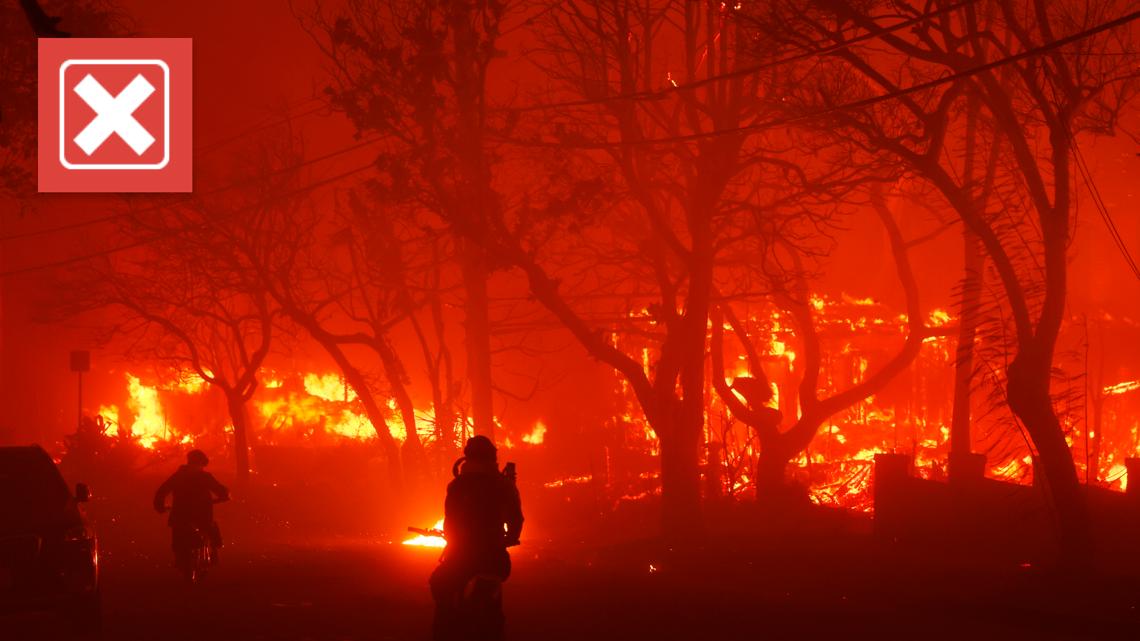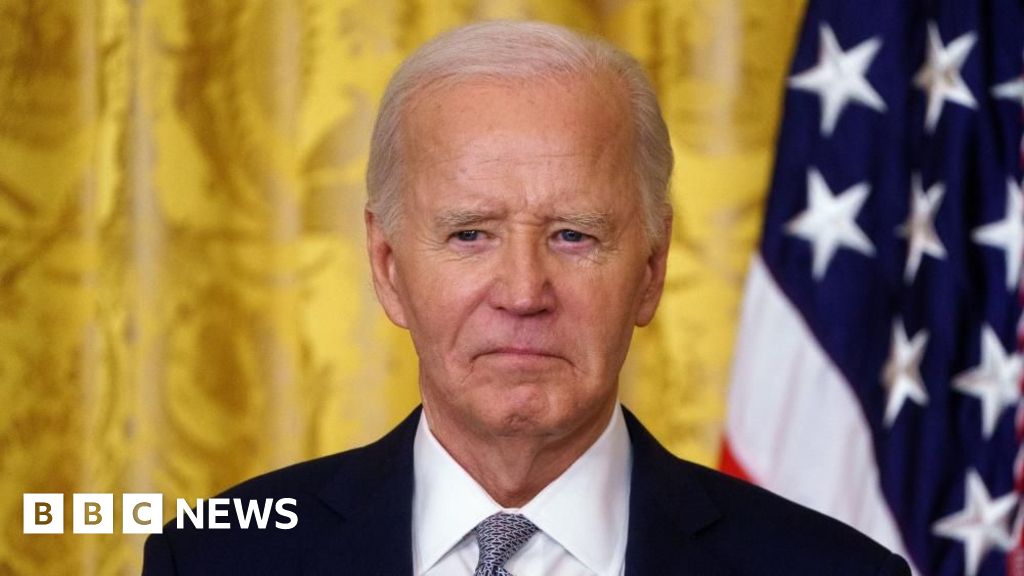You are using an out of date browser. It may not display this or other websites correctly.
You should upgrade or use an alternative browser.
You should upgrade or use an alternative browser.
Breaking News Pacific Palisades currently under an evacuation order due to the fast-moving, wind-driven fire|Update: LAPD has @ Least One Arsonist In Custody
- Thread starter StringerBell
- Start date
-
- Tags
- california wild fires
More options
Who Replied?StringerBell
OG
LurkerSix
OG
well, imma imma just leave this here. Do what you will with this info

 www.dailynews.com
www.dailynews.com

 www.fox43.com
www.fox43.com

In the Palisades Fire, LA DWP’s 3 huge water tanks all ran out of water
Officials urged DWP customers to conserve water throughout the city, “because the fire department needs the water.”
Janisse Quiñones, CEO of LADWP, said Wednesday that the department saw four times the normal demand for water that “pushed the system to the extreme,” which in turn seriously lowered the water pressure as the firestorm spread across Pacific Palisades.
She said at a press conference that her department had four times the normal demand for water for 15 hours straight — causing DWP to run out of water in three huge water tanks used on the Palisades Fire, with the third tank emptied of its water at 3 a.m. Wednesday morning.
Quiñones urged DWP customers to conserve water not only in the Palisades but in the entire system “because the fire department needs the water to fight fires and we’re fighting a wildfire with urban water systems, and that is really challenging.”
She explained that the first water tank in Pacific Palisades that was tapped by firefighters held about 1 million gallons of water but it ran out of water at 4:45 p.m. Tuesday, and the second tank of 1 million gallons of water ran out of water at about 8:30 p.m., followed by the third tank early Wednesday.
“Those tanks help with the pressure on the fire hydrants in the hills of Palisades,” Quiñones explained, and “because we were pushing so much water in our trunk line, and so much water was being used before it (went) to the tanks, we were not able to fill the tanks fast enough. So the consumption of water was faster than we (could) provide water in our trunk line.”
Quiñones said there is water in the DWP’s trunk line, but “it cannot get up the hill because we cannot fill the tanks fast enough.”
Her solution for now is to ask customers “across the entire system to conserve water so the Fire Department can use the urban water system to fight this fire.”
“What are we doing now?” she said. “We’re sending (crews and) about 20 water tanks … full of water to support the Fire Department.”
Municipal water systems are not designed to fight wildfires, Mark Pestrella, director of the Los Angeles County Department of Public Works told Associated Press. “That’s why air support is so critical to the firefight. And unfortunately, wind and air visibility have prevented that support,” Pestrella said.
County and city reservoirs are ready to be used to fight fires from the air once it becomes safe to fly, he said. Officials are urging residents across the region to conserve water so there’s enough for firefighters to use.
“We’re fighting a wildfire with urban water systems, and that is really challenging,” Quiñones said.

No, Los Angeles didn’t refuse to fill water reservoirs prior to fires
Firefighters were experiencing water shortages from hydrants because L.A.'s tanks couldn't be refilled as fast as water was being used.
THE QUESTION
Did Los Angeles refuse to fill its water reservoirs prior to fires?
THE ANSWER

No, Los Angeles didn’t refuse to fill its water reservoirs prior to fires.
WHAT WE FOUND
Los Angeles filled its water tanks earlier this week, prior to the start of the current wildfire outbreak. Fire hydrants used by firefighters ran out of water because of high water demand that is outpacing the speed at which water service officials can replenish the tanks.
“Fundamentally, it is not correct that LADWP refused to properly fill the reservoir needed to fight the fire,” a spokesperson for the Los Angeles Department of Water and Power (LADWP) told VERIFY. “On Monday, LADWP filled all available water storage facility tanks (around 114 throughout the City), including three 1-million gallon tanks in the Palisades area.”
Jeffrey Mount, senior fellow at the PPIC Water Policy Center, a think tank that tracks water use and storage data in California, told VERIFY that there isn’t a shortage of water in the area’s reservoirs.
“At no time during this fire has there been a shortage of water in southern California,” Mount said. “Their reservoirs are full. And there is nothing to be done with water that would have changed the course of these fires.”
Homes and fire hydrants in the Pacific Palisades both pull their water from the area’s storage tanks, which get their water from several sources, including reservoirs. Even if the city has plenty of water available, an area’s fire hydrants will run out of water if the tanks aren’t being refilled at the same rate the water is being used.
Janisse Quiñones, head of LADWP, said in a news conference that four times the normal demand of water was seen for 15 hours straight in the area of the fires.
This demand lowered the water pressure, which in turn limited the pipes’ ability to pump water into three large tanks at the speed needed to refill, the LADWP spokesperson said.
Quiñones said the first tank ran dry at 4:45 p.m. Tuesday, the first day of the fires. The second tank ran dry at 8:30 p.m. The final tank went dry at around 3:00 a.m. Wednesday.
The LADWP spokesperson told VERIFY that there isn’t a lack of water flowing through the pipes in the Palisades area. The water flowing through the large pipelines in the area are just being used up before it can reach the tanks due to the high demand from other emergency services.
StringerBell
OG
Mr.LV
OG
I swear these psychopaths and sociopaths got to squeeze race and politics into every facet of American life even during a disaster or tragedy, this shit is tiring .
StringerBell
OG
StringerBell
OG
That’s because we’re in once again Trump Error/Era so racist YT can go mask off full on racist and face no consequences because their Orange colored Gawd King is unfortunately president again…I swear these psychopaths and sociopaths got to squeeze race and politics into every facet of American life even during a disaster or tragedy, this shit is tiring .
WilberDMillz
Car Junkie
Is there any live feeds following this?
ThaManMythLegnd
Active Member
Firefighters still saying they can't get needed resources in Palisades 2 days later. This whole thing is a disgrace
LurkerSix
OG
strange people are outraged about this, but not this a few days ago

Biden plans to send $8bn arms shipment to Israel
The weapons consignment, which needs approval from House and Senate committees, includes air-to-air missiles.
